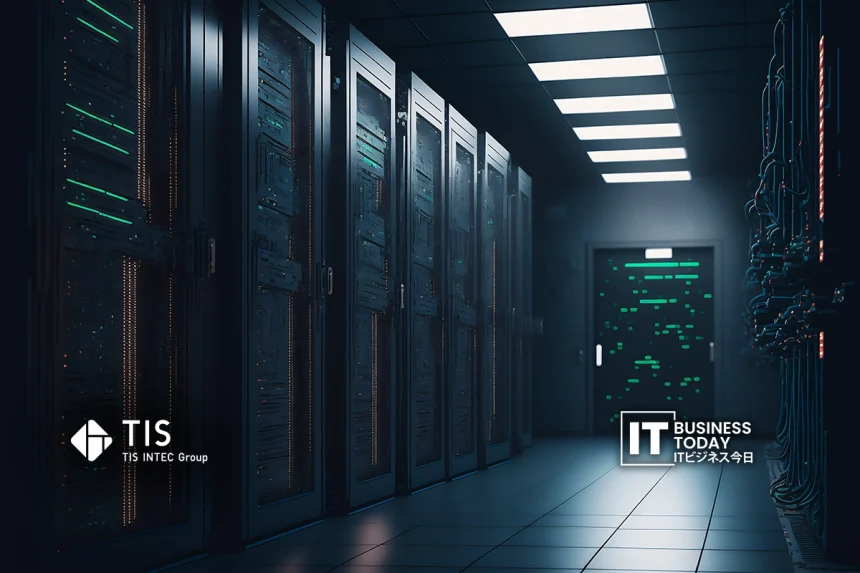TIS Inc., a member of the TIS INTEC Group, is working as part of a collaborative research group including the Osaka University Center for Quantum Information and Quantum Biology (hereinafter referred to as “QIQB”) to develop a “purely domestic” superconducting quantum computer, in which all major components, parts, and software are made in Japan. The company is pleased to announce that the computer began operation at Osaka University’s Toyonaka Campus on July 28, 2025.
In order to widely disseminate this result, we plan to exhibit parts of the entirely domestically produced machine and offer an experience program via cloud connection at the special exhibition “Entangled Moment – [Quantum, Sea, Space] x Art,” which will be held at the Osaka-Kansai Expo from August 14th to 20th, 2025.
It was developed by a collaborative research group including Professor Makoto Negoro, Deputy Director of QIQB, Yasunobu Nakamura, Director of the RIKEN Quantum Computing Research Center, Junya Kiyota, Executive Vice President of ULVAC, Inc., Masamichi Saito, Counselor of ULVAC CRYOGENICS, Inc., Takefumi Miyoshi, Director of e-Tree’s Japan Co., Ltd., Yosuke Ito, Representative Director of Q-ELL Inc., Tianren Yang, CTO of QunaSys Inc., Ryo Uchida, Chief of SEC Inc., Yasuhito Takamiya, Technical Expert at TIS, and Shintaro Sato, Director of the Quantum Research Institute at Fujitsu Limited.
Also Read: Getworks deploys servers with NVIDIA Blackwell B200 GPU
In this research, we have succeeded in developing a “purely domestic” superconducting quantum computer system, in which all major parts and software, such as the dilution refrigerator, control device, superconducting qubit chip, and quantum cloud software, are made in Japan. This demonstrates that Japan possesses all the technologies necessary to manufacture quantum computers and can integrate them into a system. Quantum computers have the potential to greatly contribute to reducing environmental impact on a global scale, through the discovery of new materials and new drugs, and solving optimization problems. They can also be useful in everyday life, such as machine learning, and we believe that the results of this research are a step toward opening up new paths in these areas.
Additionally, parts of a completely domestically produced superconducting quantum computer will be on display at the special exhibition “Entangled Moment – [Quantum, Ocean, Space] x Art,” which will be held at the Osaka Kansai Expo from August 14th to August 20th. At this exhibition, visitors will be able to connect to the system via the cloud using terminals installed in the venue and experience quantum computing by running simple quantum programs. The exhibition is planned to be a place where a wide range of people, regardless of their expertise, can enjoy quantum technologies such as quantum entanglement.
The special exhibition “Entangled Moment – [Quantum, Ocean, Space] x Art” is a limited-time special event that will be held at the Osaka Kansai Expo EXPO Messe “WASSE” from August 14th to August 20th. Held to commemorate the declaration of 2025 as the “International Year of Quantum Science and Technology,” the exhibition aims to allow many people to experience three themes through a collaboration between science, technology, and art: the microscopic quantum world, the oceans and Earth that nurture life, and the vast universe.
The all-Japanese-made machine allows visitors to learn how to operate and how quantum computers work. When visitors access the quantum computer and send commands using a regular iPad placed at the venue, the commands are converted by the quantum cloud software OQTOPUS, an open-source software, and sent over the Internet to Osaka University, where a control signal is generated from the control device. We will clearly demonstrate how the signal travels from the iPad to Osaka University through a refrigerator and then to the quantum bit.
Additionally, as part of the “Quantum Online App Experience,” a quantum theory learning app will connect online with a fully domestically produced quantum computer, allowing players to experience quantum computing through the app. This app allows players to learn quantum theory in a fun way while competing to see who can erase quantum gates, the instructions of quantum computers, as skillfully and quickly as possible. Even those unfamiliar with quantum theory can enjoy it. Additionally, by connecting to a quantum computer online, players can experience competitive play against QPU (Quantum Processing Unit) players, utilizing random numbers generated in real time.
Unit 3, which served as the basis for the development of the all-domestic machine, will also be operated from the Expo site, achieving the maximum entanglement of quantum bits, known as the “entanglement moment.” On August 15th, there will also be a stage event where visitors can access Unit 3 from their smartphones and create a quantum entangled state. In collaboration with Professor Akihiro Kubota of the Department of Information Design at Tama Art University, there will be an exhibition of quantum computer art using the actual machine, as well as an art project that allows visitors to experience the quantum entanglement state on a chip. In order to create a quantum entanglement state for a large number of quantum bits, it is necessary to improve the performance of the quantum computer. This exhibition will also show how its performance improves from April to August.
SOURCE: TIS








